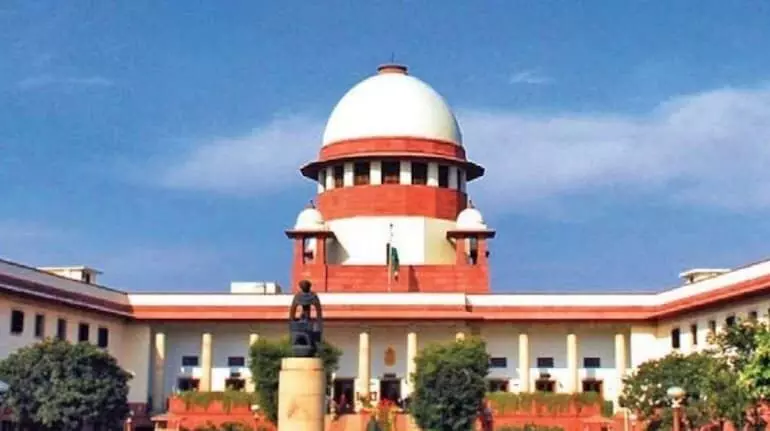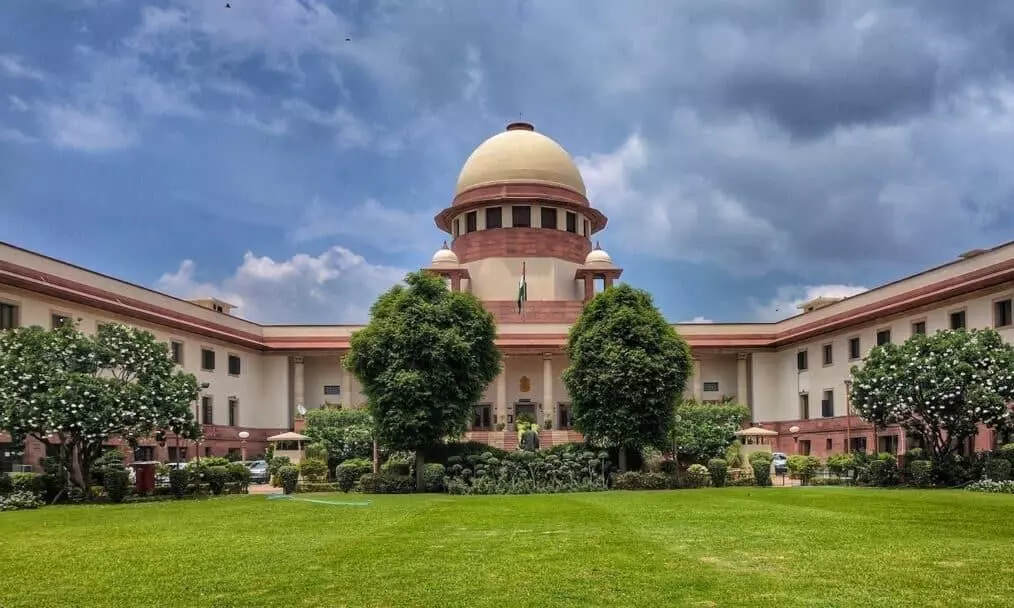
Can the Supreme Court rein in hate speech?
text_fieldsWhere is our nation headed? Why is the Centre standing as a mute spectator and watching as hate speech is being spread through the media? The Supreme Court Justices KM Joseph and Hrishikesh Roy have brought up these critical questions over the last few days while hearing 11 writ petitions seeking guidelines to curb hate speech. It is clear from the Supreme Court's response how the court feels about the government's and the media's ongoing indifference in policing hate speech. According to the affidavit submitted by the Election Commission, hate speech and rumour-mongering are not defined under any law. When Nupur Sharma incited animosity in the nation by insulting Prophet Muhammad, the Editors Guild urged the government to act against harmful media that promotes hatred. Even though the hate speech received harsh criticism, the Supreme Court did not order an arrest. As a result, questions are raised as to whether the Supreme Court can in fact ban hate speech.
In March 2017, the Law Commission of India made recommendations to the then-law minister Ravi Shankar Prasad to criminalise hate speech as the tide of anti-minority intolerance in society grew out of control. However, both the central and state governments have not given due consideration to it. Of all the 29 states, only 14 states have given a response regarding amendments to deal with hate speech. The Centre has not yet clarified its position on whether the recommendations of the Law Commission will be implemented. The explanation is clear: constant hate speech is a component of political agendas to uphold and develop the general public's conscience in support of the existing power structure. According to the court, the purpose of the media's promotion of hatred is not merely to boost ratings; it also serves to convince the authorities that they are acting in accordance with the will of the government. One must therefore consider the "importance" the Centre accords to the court's outrage.
Even though the Supreme Court and the Election Commission concur that new legislation is necessary to suppress hate speech, it is undeniable that the government is stifling free speech by employing Sections 153A, 295, and 295A of the constitution, which are currently being used to prevent religious incitement and combat hate speech. Even the Supreme Court has made an effort to look at these instances from the standpoint of upholding law and order. In the case of News18 managing editor Amish Devgun calling Khaja Muinuddin Chishti a terrorist and a thief in his TV show, Justice AM Khanwilkar and Justice Sanjiv Khanna took the position that it is difficult to define hate speech and that it can only be examined to see if it incites violence, and is an offence under Sections 153A and 295A. Although the bench ruled that the case would proceed, no arrests were made. According to the ruling of the Supreme Court in the case of Akbaruddin Owaisi, "prudence and moderation demonstrated by the public" is evidence that such speech is within the bounds of permissible expression because it does not violate law and order. The court's suggestions from the last hearing, in summary, demand the need for comprehensive laws and urge us to reevaluate the earlier findings and orders on the subject of hate speech.
The widely shared apprehension that the laws if passed in response to the Supreme Court's order would further reduce the democratic spaces in the nation is also relevant in the context of the new India. However, there is no doubt that the reprehensible content broadcast by the mainstream media will have serious impacts. Equally crucial is the question whether the 'new India' will be willing to pass laws banning remarks meant to terrorise and demonise entire populations. When the ruling establishment itself state is the source and protector of hatred, there is a greater likelihood of the legislation itself becoming a farce and burdensome to the victims. That very concern is being confirmed by recent laws in the nation.



























